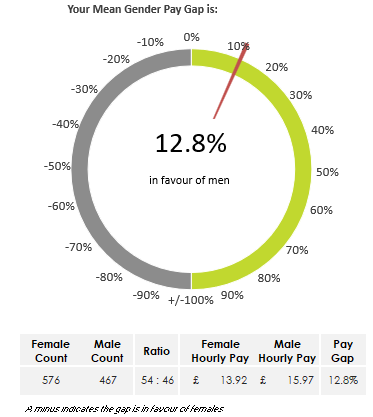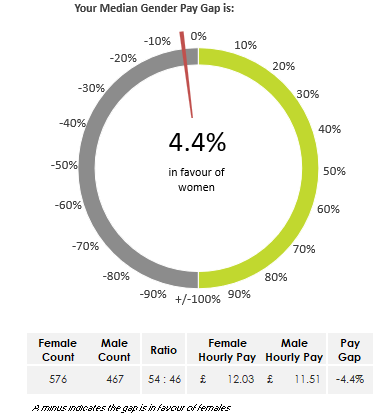Policy Statement
The Club is committed to providing equal opportunities in employment and to avoiding unlawful discrimination to its employees and job applicants and when dealing with customers, suppliers or other work-related contacts or when wearing a work uniform). This policy is intended to assist the Club to put this commitment into practice and compliance with this policy should also ensure that employees do not commit unlawful acts of discrimination. Striving to ensure that the work environment is free of harassment and bullying and that everyone is treated with dignity and respect is an important aspect of ensuring equal opportunities in employment.
It is unlawful to discriminate directly or indirectly in recruitment or employment because of:
Age, Disability, Sex, Gender reassignment, Pregnancy, Maternity, Race (which includes colour, nationality and ethnic or national origins), Sexual orientation, Religion or belief, or because someone is married or in a civil partnership. These are known as Protected Characteristics.
The policy applies to all aspects of employment with the Club, including recruitment, pay and conditions, training, appraisals, promotion, conduct at work, disciplinary and grievance procedures, and termination of employment.
Discrimination after employment may also be unlawful, e.g. refusing to give a reference for a reason related to one of the protected characteristics.
The policy covers Equality and Diversity in the workplace and in any work areas associated/connected to the workplace, including business trips and work-related social events and should be read in conjunction with the Club’s Bullying and Harassment policy.
Discrimination
You must not treat somebody less favourably because of a Protected Characteristic, than you would treat other people without that Protected Characteristic, including current and former employees, job applicants, clients, customers, suppliers and visitors. This applies to any actions taken in the course of employment whether in the workplace, outside the workplace (when dealing with customers, suppliers or other work-related contacts or when wearing a work uniform), and on work-related trips or events including social events.
Types of unlawful discrimination
Direct discrimination is where a person is treated less favourably than another because of a Protected Characteristic. Examples of direct discrimination would be; refusing to employ a woman because she is pregnant.
In limited circumstances, employers can directly discriminate against an individual for a reason related to any of the Protected Characteristics where there is an occupational requirement. The occupational requirement must be crucial to the post and must be justified objectively by showing that it is a proportionate means of achieving a legitimate aim.
Indirect discrimination is a provision, criterion or practice (PCP) that applies to everyone but adversely affects people with a particular Protected Characteristic more than others, and is not justified. For example, requiring a job to be done on a Friday evening/Saturday would adversely affect Orthodox Jews because of their belief in the Sabbath. Such a requirement would be discriminatory unless it can be objectively justified.
Harassment includes sexual harassment and other unwanted conduct, relating to one of the Protected Characteristics that has the purpose or effect of violating a person's dignity, or creating an intimidating, hostile, degrading, humiliating or offensive environment. It does not matter whether or not this effect was intended by the person responsible for the conduct.
Associative discrimination is where an individual is directly discriminated against or harassed for association with another individual who has a Protected Characteristic.
Perceptive discrimination is where an individual is directly discriminated against or harassed based on a perception that he/she has a particular Protected Characteristic when he/she does not, in fact, have that protected characteristic.
Victimisation occurs where an employee is subjected to a detriment, such as being denied a training opportunity or a promotion because he/she made or supported a complaint or raised a grievance, or because he/she is suspected of doing so. However, an employee is not protected from victimisation if he/she acted maliciously or made or supported an untrue complaint.
Failure to make reasonable adjustments is where a physical feature or a provision, criterion or practice puts a disabled person at a substantial disadvantage compared with someone who does not have the same disability and the employer has failed to make reasonable adjustments to enable the disabled person to overcome the disadvantage.
Equal opportunities in employment
The Club will avoid unlawful discrimination in all aspects of employment including recruitment, promotion, opportunities for training, pay and benefits, discipline and selection for redundancy.
Person and job specifications will be limited to those requirements that are necessary for the effective performance of the job. Candidates for employment or promotion will be assessed objectively against the requirements for the job, taking account of any reasonable adjustments that may be required for candidates with a disability.
The Club will provide guidance in equal opportunities to managers and others likely to be involved in recruitment or other decision making where equal opportunities issues are likely to arise.
Please refer to the Recruitment Policy for further guidance.
Your responsibilities
Every employee is required to assist the Club to meet its commitment to provide equal opportunities in employment and avoid unlawful discrimination.
Employees can be held personally liable as well as, or instead of, the Club for any act of unlawful discrimination, whether intentional or not. Employees who commit serious acts of harassment may be subject to the disciplinary process.
Grievances
If you consider that you may have been unlawfully discriminated against, you may use the Grievance procedure or the Bullying and Harassment Policy to make a complaint.
The Club will take any complaint seriously and will seek to resolve any grievance that it upholds. You will not be penalised for raising a grievance, even if your grievance is not upheld. However, making a false allegation deliberately and that is both untrue and made in bad faith may be treated as misconduct and dealt with under our Disciplinary Procedure. .
Training and guidance
The Club will provide training and guidance to its managers and others likely to be involved in recruitment or other decision making where equal opportunity issues are likely to arise.
The Club will provide training to all existing and potential new employees to help them understand their rights and responsibilities, and what they can do to create an environment free of bullying and harassment.



